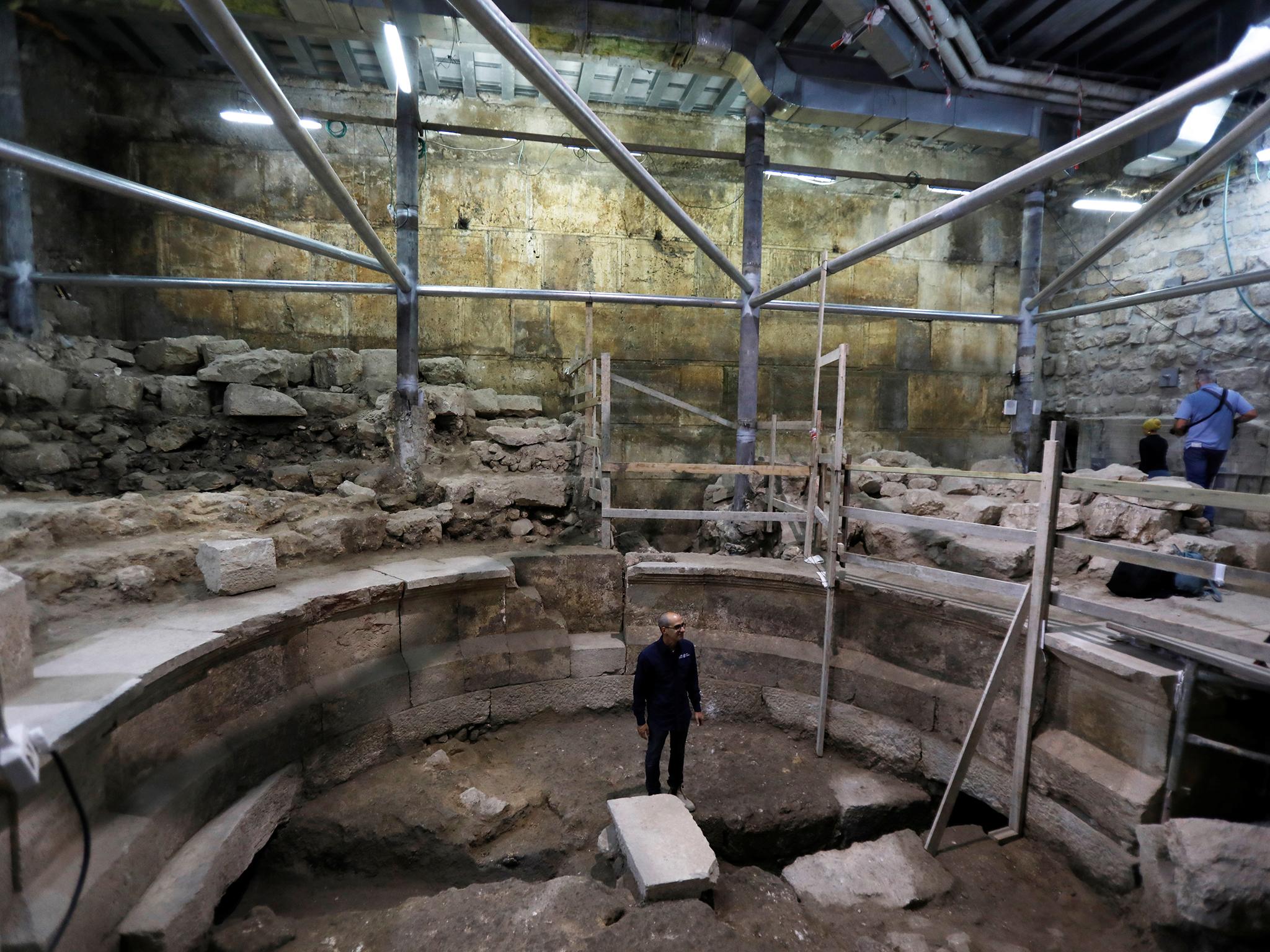Lost Roman theatre discovered near Jerusalem's Western Wall by archaeologists
Find hailed as 'sensational' and could reveal further secrets about the ancient city

Your support helps us to tell the story
From reproductive rights to climate change to Big Tech, The Independent is on the ground when the story is developing. Whether it's investigating the financials of Elon Musk's pro-Trump PAC or producing our latest documentary, 'The A Word', which shines a light on the American women fighting for reproductive rights, we know how important it is to parse out the facts from the messaging.
At such a critical moment in US history, we need reporters on the ground. Your donation allows us to keep sending journalists to speak to both sides of the story.
The Independent is trusted by Americans across the entire political spectrum. And unlike many other quality news outlets, we choose not to lock Americans out of our reporting and analysis with paywalls. We believe quality journalism should be available to everyone, paid for by those who can afford it.
Your support makes all the difference.Archaeologists have discovered an ancient Roman theatre near to the Western Wall in Jerusalem.
The 200-seat arena was discovered eight metres underground, along with a large section of the Western Wall that had been buried underground for 1,700 years.
The discovery was made under Wilson’s Arch in Jerusalem’s ancient Old City. Researchers from the Israel Antiquity Authority have been excavating the site for the last two years.
During the time of the Second Temple, which was destroyed in 70 CE, Wilson’s Arch was part of a raised walkway used by worshippers entering and exiting the holy site. Below it was a road containing shops and water drainage systems. The area was covered around 360 BC when earthquake damage led residents to fill the arch with debris to prevent it collapsing.
Archaeologists said the round, classical Roman-style theatre was a significant find.
“The discovery of the theatre-like structure is a real drama,” said Dr Joe Uziel, one of the excavators. "From a research perspective, this is a sensational find. The discovery was a real surprise: we did not imagine that a window would open for us onto the mystery of Jerusalem’s lost theatre.
“Like much of archaeological research, the expectation is that a certain thing will be found, but at the end of the process other findings – surprising and thought-provoking – are unearthed.”
The theatre is the first rediscovered example of a Roman public building in Jerusalem. Half-finished steps and guide marks on some stones suggest the arena may not have been completed at the time it was filled in. Archaeologists said they believe it was never used.
Scientists have carried out comprehensive dating tests on materials found at the site but the results will not be known for several months. However, the team is sure the theatre dates from the Roman era.
The team hopes that further excavations, which are due to take place over the next six months, will uncover even older artefacts dating from the time of the First Temple, which was destroyed in 587 BCE.
The Roman theatre near Wilson’s Gate has been the subject of excavations for more than 150 years. Its existence was mentioned by writers such as Flavius Josephus but, until now, it had never been located.
The find could help experts understand what took place in Jerusalem after it was destroyed by the Romans in 70 CE. They began rebuilding the city in 130 CE.
“What happened on the Temple Mount between the destruction of the Second Temple and the Muslim period is one of the riddles we have yet to solve,” said Dr Uziel.
Join our commenting forum
Join thought-provoking conversations, follow other Independent readers and see their replies
Comments